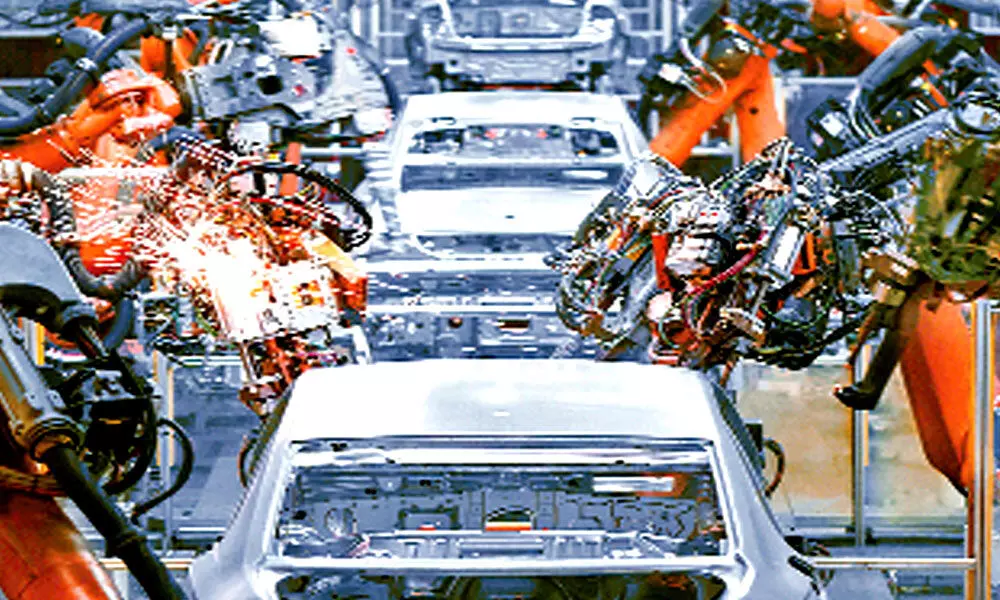Forging industry facing the heat of declining auto sales
Moreover, the rise in steel prices and vehicles have further hammered down the forging industry in India
image for illustrative purpose

The ripple effect
- With slowdown of auto sector, forging industry saw 50% slowdown
- Citing various concerns like chip shortages, rising input costs, commodity prices, and fuel costs, automotive sales in India fell double digits in FY20,21
- Stressed supply leading to longer wait times in automotive sector
Mumbai: With the ripple down effect of declining automobile sales, the forging industry is facing the heat with a sharp decline in demand which has resulted in substantial production cuts, industry body AIFI said on Monday.
Moreover, the rise in steel prices have further hammered the forging industry in the country and with some car makers already indicating that vehicles will be more expensive from the coming months, the forging and auto component industries are anticipating a 'bleak' festive season this year, the Association of Indian Forging Industry (AIFI) said.
The domestic forging industry primarily caters to the automotive industry, which accounts for 60-70 per cent of the forging production. With the auto sector witnessing the slowdown, the forging industry has witnessed an average slowdown of 50 percent of the total capacity, the Association said. After growing at more than 10 per cent in the early 2010, the auto industry is now struggling to stay in the green. Due to various factors such as semiconductor chip shortages, rising input costs, rising commodity prices, and rising fuel costs, total automotive sales in India have declined in double digits in FY20 and FY21.
Therefore, the overall auto components and forging industry have not seen an improvement in their order books, AIFI said. The industry anticipated a rebound for the overall passenger vehicle market following the second wave of the Covid-19 pandemic. However, it is the supply, not the demand, that is likely to lead to longer wait times, which will have a long-term impact on consumer sentiment, as per the forging industry.
"The automobile industry is still going through challenging times after the second wave. The sector faces new obstacles on a regular basis. The industry is currently concerned due to the lack of semi-conductor chips. It has an indirect impact on India's forging sector," said Vikas Bajaj, President, AIFI. Additionally, customers are experiencing extended wait times, and the demand-supply imbalance may have an impact on automakers throughout the festive season, he said.
"Furthermore, the rise in steel prices has harmed India's forging industry. Steel is a basic requirement in the forging industry and the current price hike has disturbed the supply chain. If this continues to exist, the high steel prices will reach inflation levels more than what the country is currently witnessing," said Bajaj.
Additionally high raw material prices continue to be a challenge and high fuel prices continue to have an impact on customers and purchase decisions, he said, adding, "If manufacturing production and demand do not improve in the coming months, the forging and auto-component sectors will continue to struggle".
Maruti Suzuki, Toyota, Hyundai, and Mahindra & Mahindra have already indicated that their vehicles will be more expensive in the coming months, AIFI said. The Association said it had earlier this year raised its concern over high steel prices to the Prime Minister Narendra Modi besides writing to various ministries such as Micro, Small and Medium Enterprises, Heavy Industries, Steel, and Commerce and Industry.

